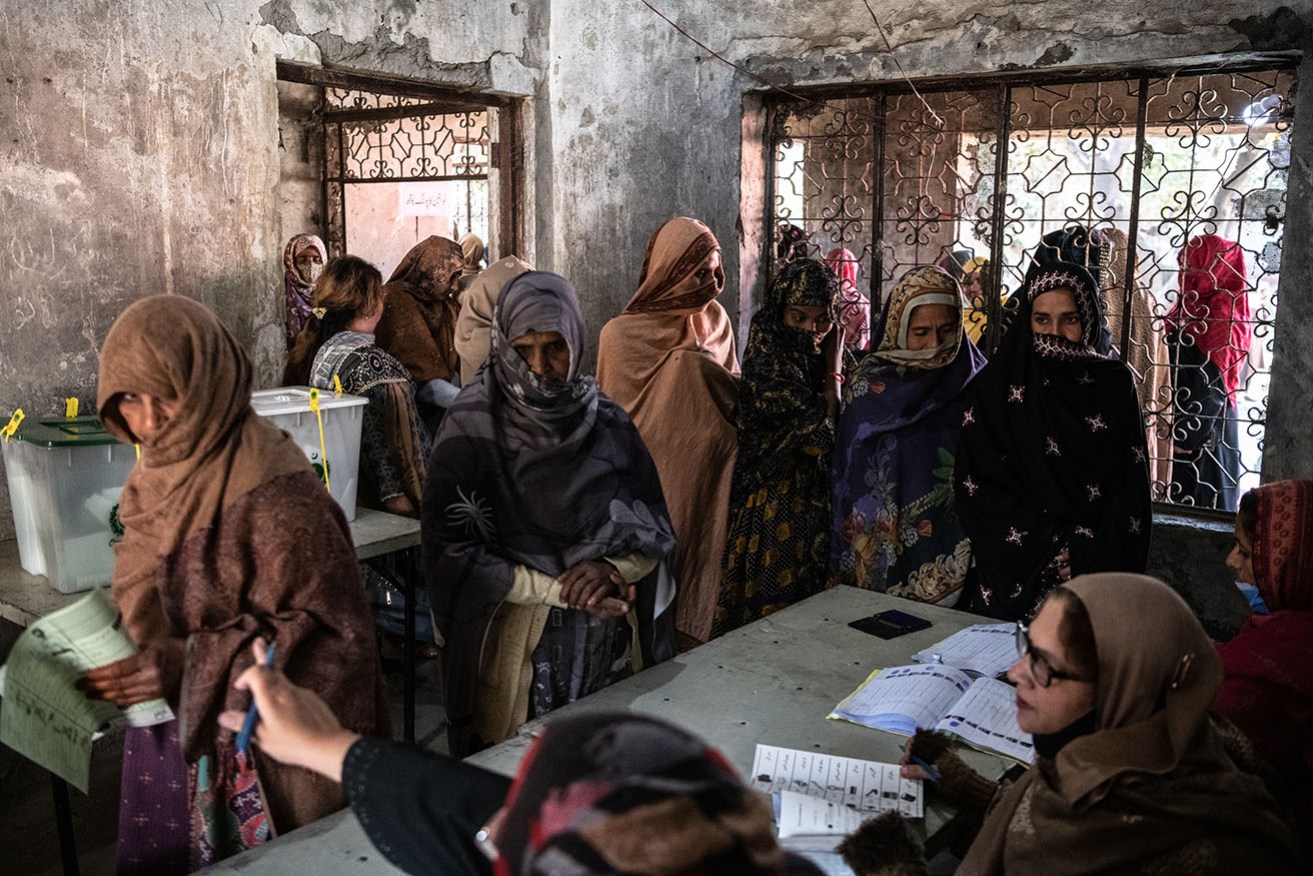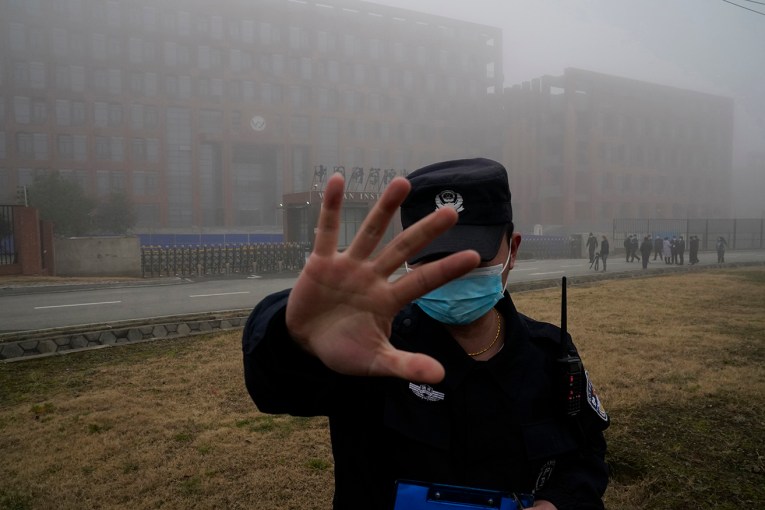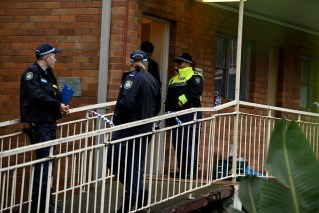Nine killed as violence mars Pakistan election

Violence has marred the Pakistan national election but voters have turned out in big numbers. Photo: Getty
At least nine people, including two children, have been killed in militant attacks in Pakistan as the country voted in a general election.
Security concerns had earlier prompted officials to suspend mobile phone services and close some land borders to maintain law and order during the poll.
Thousands of troops were also deployed on the streets and at polling stations across the country as voting commenced and borders with Iran and Afghanistan were temporarily shut.
Despite the heightened security, five policemen were killed in a bomb blast and firing on a patrol in the Kulachi area of Dera Ismail Khan district in the north-west, authorities said.
Another person died in firing on a security forces vehicle in Tank, about 40 kilometres to the north.
In Balochistan, a soldier from a civilian force was killed and 10 others injured in over a dozen blasts caused by grenades or improvised explosive devices, officials said, while two children died in a blast outside a women’s polling station.
Mohsin Dawar, a candidate from North Waziristan – a hotbed of Islamist insurgents in north-west Pakistan – said in a letter to the Election Commission of Pakistan (ECP), that some polling stations in his constituency were taken over by local “Taliban” who were threatening polling staff and locals.
There was no immediate confirmation from the election commission or security forces.
In spite of the security worries and bitter winter cold, long queues began forming at polling stations hours before voting was due to start.
“The country is at stake, why should I come late?” said 86-year-old Mumtaz, a housewife a decade older than Pakistan itself as she lined up in Islamabad.
Besides the militancy, the election is also being held as Pakistan remains mired in a deep economic crisis and a highly polarised political environment. Many analysts believe no clear winner may emerge.
Unofficial first results are expected in the hours after voting closes with a clearer picture likely to emerge early on Friday.
The move to suspend mobile networks sparked criticism from leaders of opposition parties, with the Pakistan Peoples Party’s Bilawal Bhutto Zardari, the 35-year-old son of former premier Benazir Bhutto, calling for its “immediate restoration”.
Jailed former Prime Minister Imran Khan’s Pakistan Tehreek-e-Insaf (PTI) party, in a post on X, called on people to remove passwords from their personal Wifi accounts “so anyone in the vicinity can have access to internet on this extremely important day”.
Some voters also expressed anger at the suspension of mobile services.
Officials said they received several complaints from people who were unable to find their polling stations because of the internet shutdown.
“The communication with voters and others are very difficult … we are facing so many problems due to the internet closure,” said 50-year-old Mehmood Chaudry, a school teacher who cast his vote in the city of Rawalpindi.
Former prime minister Nawaz Sharif, considered by many analysts to be the front runner, dismissed talk of an unclear result and emphasised the need for a “clear majority”.
“Don’t talk about a coalition government. It is very important for a government to get a clear majority … it should not be relying on others,” he told reporters after casting his vote in the eastern city of Lahore.
The main contests are expected to be between candidates backed by Khan, whose party won the last national election, and the Pakistan Muslim League of Sharif, who analysts say is being backed by the powerful military.
The military has dominated the nuclear-armed country either directly or indirectly in its 76 years of independence but for several years it has maintained it does not interfere in politics.
If the election does not result in a clear majority, tackling multiple challenges will be tricky – foremost being seeking a new bailout program from the International Monetary Fund (IMF) after the current arrangement expires in March.
-Reuters








